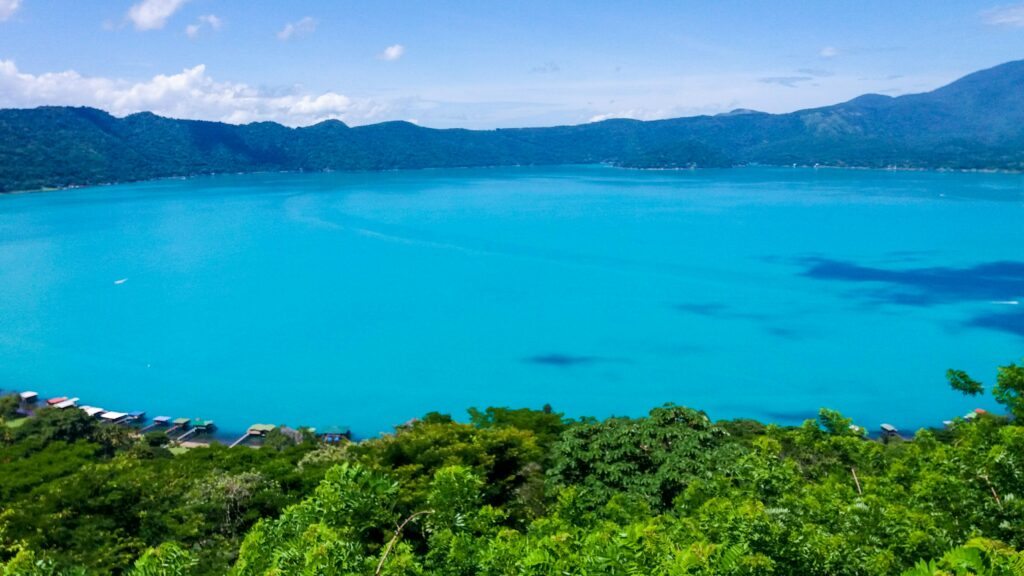
Understanding Water Quality in El Salvador
El Salvador, with its stunning landscapes and vibrant culture, is a traveler’s paradise. However, one essential aspect that often goes unnoticed is the quality of tap water. You might be thinking, “Isn’t tap water safe everywhere?” Well, the reality is a bit more complicated, especially in a developing country. So, let’s break it down.
The Basics of Water Safety
To start, it’s crucial to understand that tap water safety can vary dramatically across regions. In El Salvador, the general consensus is that the tap water is not safe for consumption. This is due to various factors, including outdated infrastructure, pollution, and inconsistent water treatment practices. Now, don’t get me wrong—this doesn’t mean you can’t enjoy the beautiful rivers and lakes, but for drinking? It’s best to stay cautious.
What About Bottled Water?
Most travelers opt for bottled water when visiting. It’s widely available in shops and eateries, so you’re covered. A tip? Always check that the seal is intact before purchasing. Dealing with a broken seal can lead to all sorts of unwelcome surprises…
Now, you might wonder, “What’s the best brand?” While it depends on personal preference, many visitors swear by either Agua Pura or Serenade, both of which are widely trusted in the region.
A Few Handy Tips
- Keep it Clear: If you’re drinking water from a bottle, avoid local brands that you’ve never heard of; stick to the well-known ones.
- Stay Hydrated, Safely: If you’re planning to hike or visit outdoor attractions, pack an extra bottle or two. Look for purified water stations in crowded areas.
What to Do If You’ve Accidentally Drunk the Tap Water
Sometimes, it happens. You’re at a restaurant, chatting away, and you take a sip of that cool glass of water without thinking twice. If this happens to you, don’t panic.
Generally, your stomach may just give you slight discomfort. However, if you start feeling worse—like experiencing nausea, diarrhea, or fever—make sure to stay hydrated (using reliable bottled water, of course). If symptoms persist, seek out a local pharmacy or medical facility. Many cities have English-speaking doctors that can assist you.
Understanding Waterborne Diseases
Countries like El Salvador can have issues with waterborne diseases such as cholera, giardiasis, and others. While the risk is relatively low for most travelers, it’s better to be aware. Good hygiene practices, like washing your hands regularly and using hand sanitizer, go a long way in preventing illness.
Restaurant and Street Food Considerations
Ah, the joy of trying local cuisine! Street tacos, pupusas, fresh seafood—the list goes on. But, with this joy comes the need to be mindful, especially when it comes to water.
Eat Smart
Avoid Ice Cubes: Unless you’re confident they were made from purified water, steer clear.
Look for Busy Spots: Thriving restaurants with customers tend to have higher turnarounds, meaning fresher food and lower risks.
Trust Your Gut—Literally: If something looks off, it probably is. Don’t be afraid to pass on a dish that gives you pause.
Traveling with Kids
Traveling with family? Water safety is that much more important. Kids can be more susceptible to stomach issues, so it’s best to take extra precautions:
Kid-Friendly Tips
Teach Them About Water Safety: Make it a fun learning experience. Explain why bottled water is safer in simple terms.
Bring a Water Filter: If you’re staying in one location for a while, consider investing in a portable water filter or purifier. This way, the little ones have access to safe water without the constant buying of bottles.
Staying Hydrated: The Right Way
Staying hydrated is key, especially in the warm Salvadoran climate. It can be tempting to just grab any drink available, but if we ain’t talking about bottled water, it’s risky.
Alternative Drink Options
Coconuts: Fresh coconuts are delicious and hydrating. Just ensure they are opened in front of you—and go for the vendors with lots of customers!
Local Drinks: Try horchata or tamarindo drinks from reputable places. Just check they are prepared with safe water sources.
Final Thoughts
In the end, your trip to El Salvador can be an unforgettable experience filled with rich culture, breathtaking sights, and delicious food. But keeping water safety top of mind will ensure those memories stick for all the right reasons.
Always prioritize bottled or treated water, maintain good hygiene, and stay informed. With these simple steps, you can focus on what really matters—experiencing the vibrant beauty and warmth of El Salvador.
**Related Reading:** – [Related: How to Plan a Solo Trip on a Budget] – [Related: Top Destinations for First-Time Solo Travelers] **#SoloTravel #Ultimate #Guide #Tap #Water #Safety #Salvador #Traveler**
